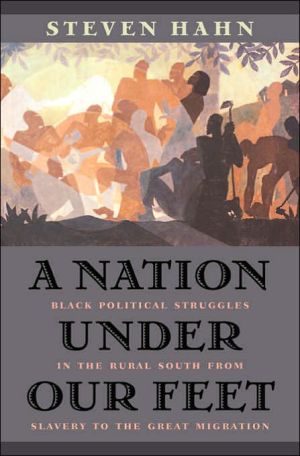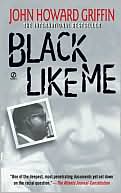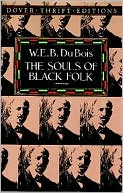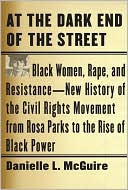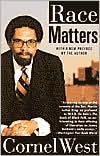A Nation under Our Feet: Black Political Struggles in the Rural South from Slavery to the Great Migration
This is the epic story of how African-Americans, in the six decades following slavery, transformed themselves into a political people—an embryonic black nation. As Steven Hahn demonstrates, rural African-Americans were central political actors in the great events of disunion, emancipation, and nation-building. At the same time, Hahn asks us to think in more expansive ways about the nature and boundaries of politics and political practice.\ Emphasizing the importance of kinship, labor, and...
Search in google:
This is the epic story of how African-Americans, in the six decades following slavery, transformed themselves into a political people-an embryonic black nation. As Steven Hahn demonstrates, rural African-Americans were central political actors in the great events of disunion, emancipation, and nation-building. At the same time, Hahn asks us to think in more expansive ways about the nature and boundaries of politics and political practice.Emphasizing the importance of kinship, labor, and networks of communication, A Nation under Our Feet explores the political relations and sensibilities that developed under slavery and shows how they set the stage for grassroots mobilization. Hahn introduces us to local leaders, and shows how political communities were built, defended, and rebuilt. He also identifies the quest for self-governance as an essential goal of black politics across the rural South, from contests for local power during Reconstruction, to emigrationism, biracial electoral alliances, social separatism, and, eventually, migration.Hahn suggests that Garveyism and other popular forms of black nationalism absorbed and elaborated these earlier struggles, thus linking the first generation of migrants to the urban North with those who remained in the South. He offers a new framework-looking out from slavery-to understand twentieth-century forms of black political consciousness as well as emerging battles for civil rights. It is a powerful story, told here for the first time, and one that presents both an inspiring and a troubling perspective on American democracy.The New YorkerLooking back on his antebellum childhood, Booker T. Washington wondered at how slaves “on the remotest plantations” had so knowledgeably debated “the great National questions.” Hahn argues, in this ambitious and fascinating book, that associations of slaves—centered on kinship, work, and religion—were far more intricate, enduring, and politicized than has been realized. For Hahn, plantation life was the crucible in which modern black political communities were formed. Slaves who hid under porches to overhear news later astonished their former masters by marching in groups to the polls (with women acting as “enforcers” of party loyalty). One of the most striking theses here is that black rural laborers, rather than urban, educated freeborn leaders, radicalized Reconstruction. Freed slaves were also, Hahn writes, some of the most important advocates America ever had for a broad concept of citizenship based not on property or education but on “manhood”—for which he calls them “the jacobins of the country.”
Prologue: Looking Out from Slavery1Pt. I"The Jacobins of the Country"1Of Chains and Threads132"The Choked Voice of a Race at Last Unloosed"623Of Rumors and Revelations116Pt. IITo Build a New Jerusalem4Reconstructing the Body Politic1635"A Society Turned Bottomside Up"2166Of Paramilitary Politics265Pt. IIIThe Unvanquished7The Education of Henry Adams3178Of Ballots and Biracialism3649The Valley and the Shadows412Epilogue: "Up, You Mighty Race"465AppBlack Leaders Data Set479Notes481Acknowledgments595Index599
\ BooklistHahn examines how disenfranchised African Americans in the rural South exercised grassroots strategies to gain political power—albeit limited—after emancipation until the migration to the North. Hahn asserts that southern rural blacks were much more active and assertive in gaining political rights than is typically portrayed and explores the connection between labor and political rights....Readers interested in the history of the struggle for racial justice will appreciate this new perspective on the period that preceded the modern civil rights movement.\ — Vanessa Bush\ \ \ \ \ \ The NationDrawing synthetically but fruitfully on a vast scholarship on slavery, emancipation, and the New South, it will likely become required reading, if not for the general public, then at least for students of American history. Those readers will encounter an elegantly written, deeply moving, powerful statement of black humanity and black agency in the momentous struggles to end slavery and to define freedom.\ — Eric Arnesen\ \ \ \ New YorkerHahn argues, in this ambitious and fascinating book, that associations of slaves—centered on kinship, work, and religion—were far more intricate, enduring, and politicized than has been realized...One of the most striking theses here is that black rural laborers, rather than urban, educated freeborn leaders, radicalized Reconstruction.\ \ \ \ \ \ Chicago TribuneIn this magisterial new book, University of Pennsylvania historian Steven Hahn gives us the history of the South from the eve of the Civil War through the dawn of the Great Migration from the perspective of rural blacks. It is an awesome and audacious undertaking. Not since W. E. B. DuBois' monumental Black Reconstruction in America, 1860-1880 (1935) has a historian ventured to structure a political history of the entire post-emancipation South around black politics.\ — Jane Dailey\ \ \ \ \ \ ChoiceThe broad scope of this study and Hahn's ability to articulate the complex characteristics of African American political origins and growth supersedes Eric Foner's seminal work or any other more specialized study on the era.\ — B. A. Wineman\ \ \ \ \ \ Dallas Morning NewsSteven Hahn's meticulously researched, richly detailed history of the black political tradition is a book of the first importance, for the author demonstrates how recently freed slaves drew on their experiences under the peculiar institution to create political communities. He explains how they responded to black nationalism, formed alliances across geographical and cultural divisions, and eventually gained rights previously denied them. This outstanding book should win more than one prize.\ — Lee Milazzo\ \ \ \ \ \ MultiCultural ReviewHahn's book demonstrates that from slavery to the Great Migration of the last century, African Americans were astute politicians, using alliances with the good and bad to ensure socioeconomic and political success. But first and foremost the author reveals for his readers how blacks dealt with the dynamics of change in the post-Civil War South as it impacted their daily lives.\ — A. J. Williams-Myers\ \ \ \ \ \ New York Journal of American HistoryHahn's work links periods normally considered distinct and even autonomous in scholarly studies of African-American life Along the way he introduces us to a cast of remarkable characters who labored relatively anonymously but heroically to give meaning to black Americans' visions for freedom Hahn's compelling narrative shows how black workers and their political and social leaders "energized the meaning of democracy" and forced the nation to confront "deep historical problems" that have resided at the heart of the American polity (10). This majestic and impassioned narrative is perhaps the deepest and most penetrating exploration we have of the long pre-history of the twentieth-century civil rights movement.\ — Paul Harvey\ \ \ \ \ \ Southern HistorianIn Steven Hahn's Pulitzer Prize-winning A Nation Under Our Feet, the aims and organization of black political agency from the final years of slavery into the early twentieth century receive a sweeping reassessment...The Great Migration of African Americans from the rural South to towns and then to the North had its roots in the 1890s and progressed sharply during World War One...Both those who moved to other regions and those who remained in the South maintained a collective identity, but they also held on to the promise that American democracy was meant to cross racial boundaries. With a wealth of evidentiary detail and lucid prose, Hahn confronts the challenges made to that promise in an engaging and cohesive work.\ — Scott Taylor Morris\ \ \ \ \ \ Inside Higher EdA compact but challenging volume...Hahn looks at the complex way the African-American struggle for emancipation took shape both under slavery and in the wake of its abolition...Only the most small-minded conception of American life would assume that these are matters of interest only to black readers. In a healthy culture, this little book would be a best-seller.\ — Scott McLemee\ \ \ \ \ \ Dallas Morning NewsSteven Hahn's meticulously researched, richly detailed history of the black political tradition is a book of the first importance, for the author demonstrates how recently freed slaves drew on their experiences under the peculiar institution to create political communities. He explains how they responded to black nationalism, formed alliances across geographical and cultural divisions, and eventually gained rights previously denied them. This outstanding book should win more than one prize.\ — Lee Milazzo\ \ \ \ \ New YorkerHahn argues, in this ambitious and fascinating book, that associations of slaves--centered on kinship, work, and religion--were far more intricate, enduring, and politicized than has been realized...One of the most striking theses here is that black rural laborers, rather than urban, educated freeborn leaders, radicalized Reconstruction.\ \ \ \ \ Chicago TribuneIn this magisterial new book, University of Pennsylvania historian Steven Hahn gives us the history of the South from the eve of the Civil War through the dawn of the Great Migration from the perspective of rural blacks. It is an awesome and audacious undertaking. Not since W. E. B. DuBois' monumental Black Reconstruction in America, 1860-1880 (1935) has a historian ventured to structure a political history of the entire post-emancipation South around black politics.\ — Jane Dailey\ \ \ \ \ ChoiceThe broad scope of this study and Hahn's ability to articulate the complex characteristics of African American political origins and growth supersedes Eric Foner's seminal work or any other more specialized study on the era.\ — B. A. Wineman\ \ \ \ \ The NationDrawing synthetically but fruitfully on a vast scholarship on slavery, emancipation, and the New South, it will likely become required reading, if not for the general public, then at least for students of American history. Those readers will encounter an elegantly written, deeply moving, powerful statement of black humanity and black agency in the momentous struggles to end slavery and to define freedom.\ — Eric Arnesen\ \ \ \ \ BooklistHahn examines how disenfranchised African Americans in the rural South exercised grassroots strategies to gain political power--albeit limited--after emancipation until the migration to the North. Hahn asserts that southern rural blacks were much more active and assertive in gaining political rights than is typically portrayed and explores the connection between labor and political rights....Readers interested in the history of the struggle for racial justice will appreciate this new perspective on the period that preceded the modern civil rights movement.\ — Vanessa Bush\ \ \ \ \ MultiCultural ReviewHahn's book demonstrates that from slavery to the Great Migration of the last century, African Americans were astute politicians, using alliances with the good and bad to ensure socioeconomic and political success. But first and foremost the author reveals for his readers how blacks dealt with the dynamics of change in the post-Civil War South as it impacted their daily lives.\ — A. J. Williams-Myers\ \ \ \ \ Southern HistorianIn Steven Hahn's Pulitzer Prize-winning A Nation Under Our Feet, the aims and organization of black political agency from the final years of slavery into the early twentieth century receive a sweeping reassessment...The Great Migration of African Americans from the rural South to towns and then to the North had its roots in the 1890s and progressed sharply during World War One...Both those who moved to other regions and those who remained in the South maintained a collective identity, but they also held on to the promise that American democracy was meant to cross racial boundaries. With a wealth of evidentiary detail and lucid prose, Hahn confronts the challenges made to that promise in an engaging and cohesive work.\ — Scott Taylor Morris\ \ \ \ \ Inside Higher EdA compact but challenging volume...Hahn looks at the complex way the African-American struggle for emancipation took shape both under slavery and in the wake of its abolition...Only the most small-minded conception of American life would assume that these are matters of interest only to black readers. In a healthy culture, this little book would be a best-seller.\ — Scott McLemee\ \ \ \ \ New York Journal of American HistoryHahn's work links periods normally considered distinct and even autonomous in scholarly studies of African-American life Along the way he introduces us to a cast of remarkable characters who labored relatively anonymously but heroically to give meaning to black Americans' visions for freedom Hahn's compelling narrative shows how black workers and their political and social leaders "energized the meaning of democracy" and forced the nation to confront "deep historical problems" that have resided at the heart of the American polity (10). This majestic and impassioned narrative is perhaps the deepest and most penetrating exploration we have of the long pre-history of the twentieth-century civil rights movement.\ — Paul Harvey\ \ \ \ \ BooklistHahn examines how disenfranchised African Americans in the rural South exercised grassroots strategies to gain political power--albeit limited--after emancipation until the migration to the North. Hahn asserts that southern rural blacks were much more active and assertive in gaining political rights than is typically portrayed and explores the connection between labor and political rights....Readers interested in the history of the struggle for racial justice will appreciate this new perspective on the period that preceded the modern civil rights movement. -- Vanessa Bush\ \ \ \ \ The New YorkerLooking back on his antebellum childhood, Booker T. Washington wondered at how slaves “on the remotest plantations” had so knowledgeably debated “the great National questions.” Hahn argues, in this ambitious and fascinating book, that associations of slaves—centered on kinship, work, and religion—were far more intricate, enduring, and politicized than has been realized. For Hahn, plantation life was the crucible in which modern black political communities were formed. Slaves who hid under porches to overhear news later astonished their former masters by marching in groups to the polls (with women acting as “enforcers” of party loyalty). One of the most striking theses here is that black rural laborers, rather than urban, educated freeborn leaders, radicalized Reconstruction. Freed slaves were also, Hahn writes, some of the most important advocates America ever had for a broad concept of citizenship based not on property or education but on “manhood”—for which he calls them “the jacobins of the country.”\ \ \ \ \ Publishers WeeklyIn his bold and extensively researched study of the black political traditions emerging out of slavery, Hahn continues the field's ongoing demolition of the myth of the submissive slave cowering before his master and the ignorant freedman passively waiting for his "40 acres and a mule" to fall from the sky. In their place, he offers an occasionally overstated but compelling portrait of rural Southern blacks fighting for political and economic power despite entrenched and often violent obstacles. From clan-based organization on the plantation through Reconstruction-era political party mobilization to the rise in emigrationist sentiment culminating in Garveyism in the 1920s, Hahn describes the serious groundwork that became most visible with the franchise but had formed long before the Civil War. He is at his strongest chronicling the hidden history of slave resistance, emphasizing slaves as agents of change, and spends less time on the extent and dimensions of psychological slavery, the vestiges of which continued well after emancipation. Hahn also minimizes the colonialist impulses behind the formation of Liberia, treating emigrationism as an expression of black resistance. While the book's prose is often congested, the research is formidable, bringing to the fore intricate histories of unknown but significant struggles. Original and deeply informed, the book does an excellent job of rendering those devoted "to the making of a new political nation while they made themselves into a new people." (Oct.) Copyright 2003 Reed Business Information.\ \ \ \ \ KLIATTSteven Hahn won the 2004 Pulitzer Prize in history for this elegantly written analysis of how blacks, through their kinship networks, their religious communities, and the circulation of political information, were formed as activists and resistors in the heart of the very culture that strove to deprive them of all rights. Thus they came to the moment of emancipation with political skills already developed, with knowledge that prepared them to move forward until they attained fully the rights they were due. While the reading of this work is an intellectual exercise in itself, the scope of the text and the depth of Hahn's research recommends it to every teacher of American history. KLIATT Codes: A*—Exceptional book, recommended for advanced students and adults. 2003, Harvard Univ. Press, 610p. illus. notes. index., Ages 17 to adult. \ —Patricia Moore\ \
